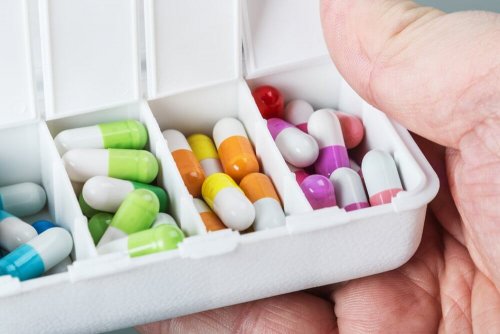Antidepressants and their Contraindications


Written and verified by the psychologist Bernardo Peña
Do you know anything about antidepressants and their contraindications? Like any other medication for a physical or mental health problem, antidepressants are pharmaceutical drugs that are meant to treat severe depression and anxiety.
Depending on the cause, these chemical products seek to restore or balance the production of chemical substances that your body requires in order to function normally.
Today, antidepressants are widely used to treat different disorders that are related to various psychological factors that keep a person from functioning normally.
In this article, we’ll take a look at them.
Types of Antidepressants and Their Contraindications

It can be complicated to find the right balance, however.
There’s a wide variety of antidepressant drugs available. These range from simpler ones with minor side effects to stronger treatments that can generate more severe outcomes. Prescriptions for this latter category must be diligently followed under doctor’s orders. The tricyclic class of drug is one example of this category.
Apart from the available pharmaceutical products, there are also natural options. Because of their milder characteristics, they provide a lower impact treatment level with few to no side effects. In addition, there are even naturally available alternatives that can have significant benefits to your health.
A growing trend
In recent years, the use of pharmaceutical antidepressants has multiplied.
According to studies conducted by the World Health Organization (WHO), the cause still remains unknown. It could be due to an increase in the number of individuals diagnosed with psychological disorders. However, it may also be due to the fact that the use of these drugs has been indicated for the treatment of other issues.
Unfortunately, a troubling answer is the possibility that excessive use of these drugs has become more socially acceptable.
The biggest drawback here is that indiscriminate use of these chemical products can create new problems. This is not just for the individual undergoing treatment, but for the environment and society, as well.
The use of antidepressants should always be subject to strict surveillance by a medical professional.
See also :
Fighting Depression with Yoga
Are antidepressants really effective?

These drugs are not a guaranteed pathway to happiness, but rather a scientific way to control certain problems that the body alone cannot regulate. Absolute results may not always be possible, however, because each case exists is different.
The use of these types of drugs is increasing every day throughout the world and the absolute effectiveness is still unknown. Keeping this in mind, one concern that is objectively measurable includes the contraindications and negative side effects of these medications.
We recommend you read:
What happens to you when you take antidepressants?

It should be a last resort only if completely necessary, because the side effects can generate major problems due to improper use.
These include:
- Frustration. The effects of these drugs are long-term and often the slowness of the process can generate anxiety and frustration in the patient.
- Tolerance to medication. The body can become immune to a drug and cease to have the expected effect, making it necessary to increase the dose and duration of treatment.
- Drug dependence. In many cases, the medication only acts as a placebo after prolonged usage, creating dependence or addiction.
- Some specialists, such as researcher Irving Kirsch at the University of Hull (England), believe that the use of antidepressants can alter your brain chemistry.
- Other physical complications associated with the use of these drugs may include sexual dysfunction, nausea, uncontrolled weight gain, constipation, loss of muscle control, and dizziness.
Overall, if you’re considering the use of one of these types of drugs, your best option is to research the natural alternatives and less aggressive compounds first.
If you find that it’s still necessary to have a stronger intervention, remember that you must do so under the supervision of a specialist.
All cited sources were thoroughly reviewed by our team to ensure their quality, reliability, currency, and validity. The bibliography of this article was considered reliable and of academic or scientific accuracy.
- Santarelli, L., Saxe, M., Gross, C., Surget, A., Battaglia, F., Dulawa, S., … Hen, R. (2003). Requirement of hippocampal neurogenesis for the behavioral effects of antidepressants. Science, 301(5634), 805–809. https://doi.org/10.1126/science.1083328
- Serretti, A., Drago, A., & Liebman, M. N. (2009). Pharmacogenetics of antidepressant response. In Biomarkers for Psychiatric Disorders (pp. 315–353). Springer US. https://doi.org/10.1007/978-0-387-79251-4_14
- Willner, P., Scheel-Krüger, J., & Belzung, C. (2013, December). The neurobiology of depression and antidepressant action. Neuroscience and Biobehavioral Reviews. https://doi.org/10.1016/j.neubiorev.2012.12.007
This text is provided for informational purposes only and does not replace consultation with a professional. If in doubt, consult your specialist.








